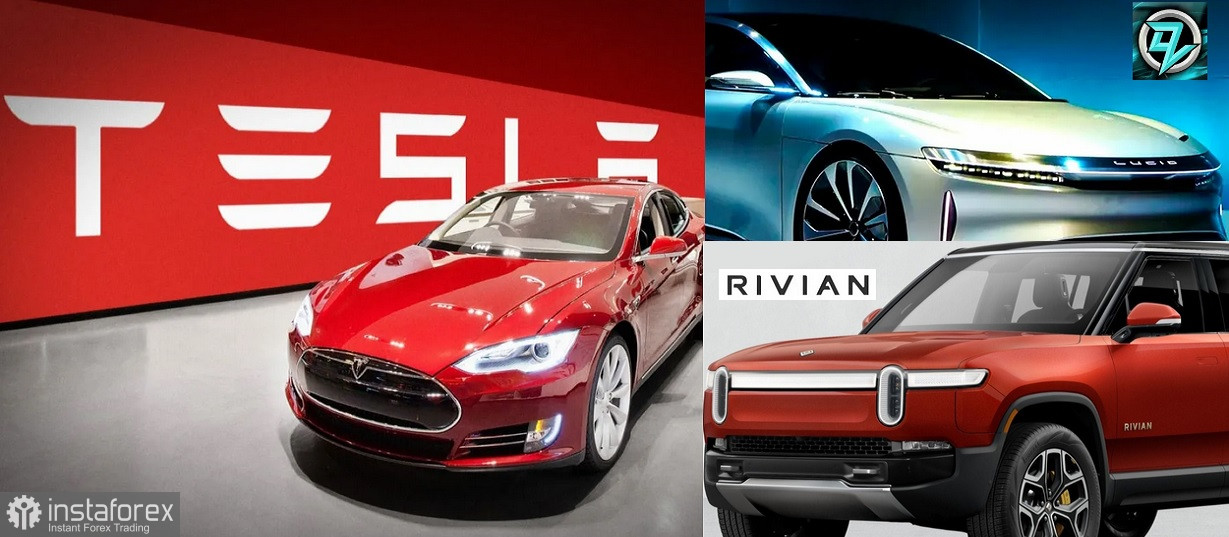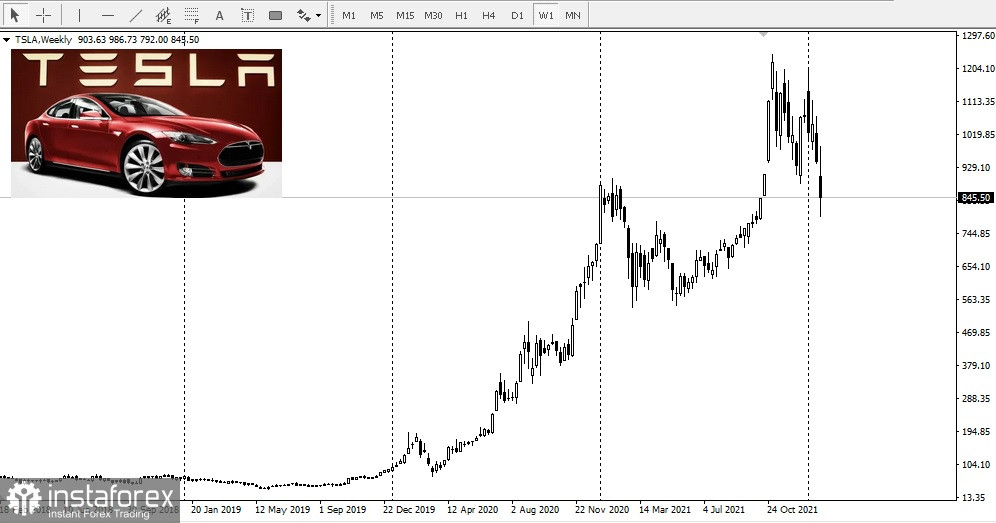
The old saying: "the US stock market rises more than it falls, but falls faster than it rises," couldn't be truer. In just over three years, everyone has witnessed three major sell-offs, and it was all within a few weeks. This is the sell-off in the US-China trade war at the end of 2018, the sell-off caused by the COVID-19 pandemic in March 2020, and now the current sell-off.
Despite reporting record profits after the market closed on Wednesday, shares of Tesla and other electric car companies such as Lucid Group and Rivian Automotive fell in value on Thursday and Friday. Here's how Tesla's results and management comments affect Lucid and Rivian. It is noteworthy that Lucid is not immune to a potentially challenging year for the automotive industry.
It can be incomprehensible to newcomers to investing when an industry-leading company like Tesla reports incredibly impressive results, but its stock price is still falling. This is partly due to the expectations that led to the report. But in most cases, this is due to management's instructions for the upcoming quarters.
There is no denying that Tesla's business is in better shape. Last year, there were 87% more cars delivered to the Tesla market than in 2020. The increase in revenue for the year is 71% more than last year. The net profit amounted to 5.52 billion dollars, and the result of free cash flow is more than 5 billion dollars. This is all despite the fact that the capital investment is more than twice the capital cost due to the construction of plants in Texas and Germany.
The company also ended 2021 with an annual operating margin of 12.1% and a record-high quarterly operating margin of 14.7%. Tesla's industry-leading operating margin continues to be one of the company's biggest competitive advantages. This is the result of high demand for its vehicles, virtually non-existent advertising costs, and production efficiency.

However, there were several major warning signs in the income statement. The operating margin could be a few percentage points higher if not for the large stock-based compensation to CEO Elon Musk, higher logistics costs due to supply chain issues, and higher costs for parts and services due to inflation.
During the company's earnings report for the fourth quarter of 2021, Musk said that the chip shortage problem will persist throughout this year.
Tesla's results, and management's comments, show that it may be difficult for other companies like Lucid to start production in 2022.
However, Lucid only began shipping its most expensive Air vehicle – the Air Dream Edition, at the end of October and has yet to announce meaningful deliveries of its second most expensive variant, the Grand Touring.
Another important point is the cost of delivery and logistics. Without a sophisticated distribution system, Lucid may face supply problems in its business as it tries to deliver cars across the country.
Thus, supply chain problems and a constant shortage of chips are serious threats that could prevent Lucid from achieving its 2022 goals. Or even if it does, the company could deplete its cash position much faster than expected.
On the other hand, the situation with Rivian is not similar to the situation with Tesla, but there are some similarities.
Tesla is getting good prices for its cars right now, and that led to a good operating profit last quarter.
However, it will face some major challenges in the near future, including increased competition, supply chain issues, and a shortage of new products.
The first item on the bulleted list won't matter to Rivian for a while. It will take at least a few years before the company will have the opportunity to generate a positive operating margin, and even more so such as Tesla.
But in doing so, Rivian will face its own challenges in the near future, and some of them will overlap with Tesla's.
Tesla shares are designed for absolute world domination.
If Rivian succeeds, there will be direct competition, as is happening now with Tesla. However, it will probably take at least a few years.
Lucid and Rivian remain high-risk, high-profit options in the electric vehicle industry. The stock prices of both companies have fallen by more than 60% compared to historical highs. But, to be clear, Lucid's $44 billion valuations and Rivian's $49 billion valuations are still extremely high for companies that are several years away from positive operating profit.
However, the current market is different from what it used to be. Lucid and Rivian have a lot of money on their balance sheets. As long as the investment thesis remains valid, it should be easier for both companies to raise more money if needed — a luxury that Tesla couldn't afford when it built its business a few years ago. This is because the mood in the industry has shifted in favor of investing in electric vehicles. Even older automakers see the potential in electric vehicles and are investing billions accordingly.





















